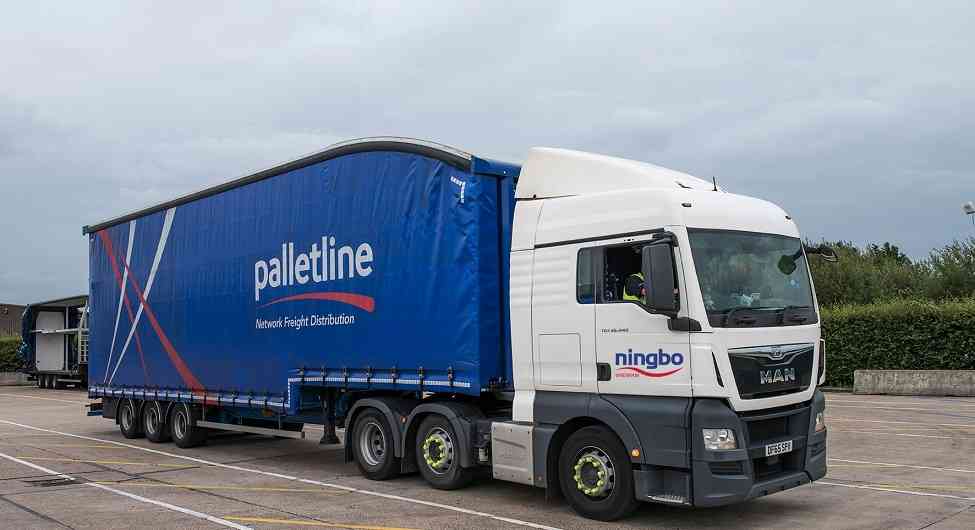A Complete Guide to Palletised Distribution | Efficient and Reliable Freight Movement

As businesses grow and supply chains become more complex, the need for reliable and efficient freight management continues to rise. One of the most effective systems for moving goods safely and economically is palletised distribution. This method has transformed the logistics industry by simplifying the handling, storage, and transportation of products across local, national, and even international networks. Whether serving manufacturers, retailers, wholesalers, or e-commerce brands, palletised systems provide a streamlined approach that enhances productivity, reduces damage, and improves delivery speed. With increasing demand for timely shipments and cost-effective logistics, palletised distribution has become essential for modern businesses.
What Is Palletised Distribution?
Palletised distribution is a logistics system in which goods are packed onto pallets for safer and easier transportation. Instead of handling items individually, products are secured together as a single, stable unit. This method reduces handling time, protects products from damage, and simplifies loading and unloading. Pallets also allow goods to be moved using forklifts or pallet trucks, increasing efficiency and creating a more organized workflow.
Materials commonly transported this way include packaged goods, construction materials, food items, electronics, industrial equipment, and retail products. The system is flexible enough to suit small businesses and large enterprises alike.
Why It Has Become a Standard in Logistics
The widespread adoption of palletised systems is due to the many benefits they bring to supply chains. Businesses across industries choose this method because it offers:
Faster Handling
With palletisation, entire loads are moved at once rather than item by item. This reduces loading and unloading time significantly.
Reduced Product Damage
Products strapped or wrapped on pallets remain stable throughout the journey, minimizing the risk of breakage.
Better Warehouse Organization
Pallets make it easier to stack and store goods, maximising storage space.
Streamlined Transport
Palletised loads fit neatly into trucks, shipping containers, and storage facilities, improving overall transport efficiency.
How Pallets Improve Freight Safety
Safety is a major priority in logistics, and palletised systems help reduce the risk of accidents. Since goods remain secured during movement, there is less shifting or falling. Forklift operators can lift and transport full loads safely, reducing strain and improving workflow. Additionally, pallets prevent items from touching the floor, keeping them clean and better protected.
Types of Pallets Used in Distribution
Different industries and cargo types require different pallet materials:
Wooden Pallets
Durable, cost-effective, and ideal for heavy goods. These are the most widely used.
Plastic Pallets
Moisture-resistant, hygienic, and suitable for food or pharmaceutical products.
Metal Pallets
Very strong and long-lasting, often used for industrial machinery or heavy loads.
Presswood or Composite Pallets
Lightweight and export-friendly, commonly used for international shipments.
Choosing the right pallet type ensures safe and efficient movement of goods.
How Palletised Distribution Works
The process follows a structured and highly efficient workflow:
Goods Are Prepared
Products are boxed, packaged, or wrapped according to standards.
Items Are Loaded Onto Pallets
They are arranged securely and fastened using strapping, shrink wrap, or stretch film.
Pallets Are Collected
A logistics provider collects the palletised freight directly from the business location.
Goods Move Through the Network
They are routed through depots or central hubs depending on destination.
Final Delivery
Pallets reach the receiving depot and are delivered to the final customer.
This organised system makes record-keeping, tracking, and scheduling significantly easier.
Benefits of Palletised Logistics for Businesses
Cost Efficiency
Because transport vehicles carry more goods at once, businesses save on fuel, time, and operational expenses.
Scalability
Growing companies can increase shipment volumes without overhauling their logistics processes.
Improved Tracking
Many providers offer barcode scanning and digital tracking for real-time shipment visibility.
Flexibility
Whether shipping a single pallet or multiple truckloads, the system adapts to business needs.
Industries That Rely on Palletised Distribution
A wide range of industries benefit from this system, including:
-
Manufacturing
-
Retail
-
Home and garden supplies
-
Automotive
-
Construction
-
Electronics
-
Food & beverage
-
E-commerce
The versatility of palletised logistics makes it ideal for almost any product-based business.
Technology’s Role in Modern Distribution
As logistics evolves, technology plays a larger role in improving palletised networks. Innovations include:
-
Real-time tracking systems
-
Automated warehouse equipment
-
Digital route optimisation
-
Advanced scanning and inventory tools
-
Sustainability-focused transport planning
These enhancements help businesses reduce errors, monitor shipments, and improve customer satisfaction.
Environmental Advantages of Palletised Systems
With sustainability becoming a priority, palletised transport provides eco-friendly benefits by:
-
Reducing fuel consumption through optimised loading
-
Minimising packaging waste
-
Encouraging pallet reuse and recycling
-
Lowering carbon emissions with efficient routes
Many logistics companies are investing in greener practices to further reduce environmental impact.
Choosing the Right Palletised Distribution Partner
For businesses looking to streamline their logistics, choosing a reliable service provider is crucial. Key factors to consider include:
-
Network coverage
-
Delivery speed and reliability
-
Tracking capabilities
-
Handling standards
-
Cost efficiency
-
Customer support
The right partner ensures smooth transport, consistent service, and secure handling of goods.
Conclusion
In an era where speed, accuracy, and cost control are essential, palletised distribution has become a cornerstone of efficient logistics. By simplifying the movement of goods, improving safety, and reducing operational expenses, this system supports businesses of all sizes. Whether shipping locally or nationally, palletisation offers a practical and dependable solution that enhances the entire supply chain. As technology advances and consumer expectations rise, palletised freight will remain a vital component of modern distribution—ensuring products reach their destinations quickly, safely, and economically.
- Art
- Causes
- Crafts
- Dance
- Drinks
- Film
- Fitness
- Food
- Jocuri
- Gardening
- Health
- Home
- Literature
- Music
- Networking
- Alte
- Party
- Religion
- Shopping
- Sports
- Theater
- Wellness



